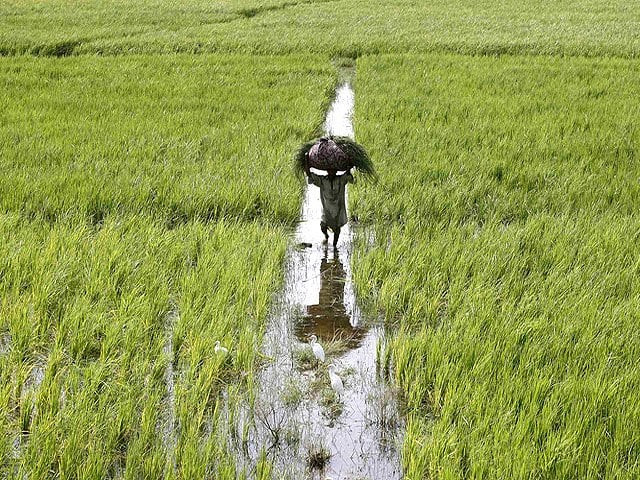Digital transformation in agri sector
Any reforms to reduce inflation without transforming agriculture are not sustainable

While the media was focused on developments on the political front keeping a close watch on every manoeuvre of the Pakistan Democratic Movement (PDM) to topple the government, it turns out that the real threat to the Pakistan Tehreek-e-Insaf (PTI) government lies far away from the political hue and cry and into the management of economic affairs.
Although there was no long march by the opposition alliance in the month of March, the government had to succumb to the mounting inflationary pressures with a major shake-up in the Q-Block for the final innings leading to general elections.
With the veteran politician and minister passing on the baton to Hammad Azhar, it was heard on the grapevine that Shaukat Tarin might eventually spearhead the game plan to deliver on the main promise made by the PTI in the election campaign, ie, to provide relief to the common man.
You can recall the risk of mounting inflationary pressures highlighted in my last article titled “Bubble in stock market faces piercing inflation”, which may eventually force central bankers to turn hawkish prematurely.
While developed countries have deep pockets and tolerance for the inflationary pressures, there could be serious implications for developing countries like Pakistan where the meagre gross domestic product (GDP) growth rate of 2%, projected by the World Bank, is already painting a bleak picture.
Supply chain disruptions globally due to the Covid-19 pandemic have created a chaotic situation, which may last for months, if not years.
The uneven K-shaped recovery has posed many challenges, especially by creating a bottleneck at major ports and shipping routes, where suppliers are scrambling to find containers for shipments. Besides the global disruptions caused by the pandemic, there are many home-grown issues, aggravating the situation.
These issues are created by an inefficient market mechanism and practices followed to support the middle man and promote speculation even on the commodities considered as lifeline for the common man.
The recent fiasco pertaining to sugar, wheat, cotton and poultry products and subsequent findings by inquiry committees reminds us of the much-needed reforms in the entire supply chain of the agriculture sector completely neglected by all previous governments due to political motives.
The absence of a robust and transparent information system has created a breeding ground for the mafias and deep-pocket speculators to even buy a whole crop for instance and corner any commodity at will.
Amid all these debacles one after another, the headline inflation kept surging and reached 9.05% year-on-year in March mainly due to high prices of food and poultry items, compared to 8.70% in the preceding month. For 9MFY21, the Consumer Price Index (CPI) now stands at 8.34% year-on-year.
With the month of Ramazan approaching fast, the challenge to tame the beast of inflation seems to be an uphill task and the first litmus test for the new economic team.
The mere fact that the government deliberated on importing sugar and cotton from India shows the gravity of the situation, and although not approved by the cabinet until the resolution of all outstanding issues, the significance of a major overhaul in the agriculture sector is brought to the limelight once again.
Until the improvement in regional ties and trade cooperation, we have to rely heavily on improving local systems and key reforms are required to create a more scientific, data-driven and transparent management system for the agricultural economy.
To manage the information of agricultural produce among provinces, various globally available models such as the Agricultural Market Information System (AIMS), used by G20 countries, could be studied and adopted. Going forward, the utilisation of automation, artificial intelligence and advanced data analytics is inevitable in every aspect of economy and agriculture sector is no exception.
One neglected aspect is the underutilisation of Pakistan Mercantile Exchange (PMEX) to provide the ease of trading main commodities in both cash and futures contracts to safeguard the interest of producers and manufacturers.
Transparency in trading of commodities reduces volatility, results in better price discovery and provides hedging options against any future disaster such as drought or supply issues.
Being an agrarian country, any reform in the economy to bring down inflation without transforming the agriculture sector is not sustainable and despite the political implications, the paradigm shift is the matter of how and not when.
THE WRITER IS A FINANCIAL MARKET ENTHUSIAST AND ATTACHED TO PAKISTAN’S STOCKS, COMMODITIES AND EMERGING TECHNOLOGY



















COMMENTS
Comments are moderated and generally will be posted if they are on-topic and not abusive.
For more information, please see our Comments FAQ